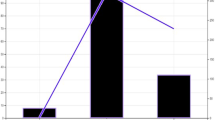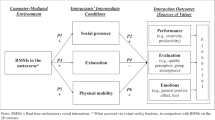Abstract
Building on Alfred Schütz’s work, this essay conceptually scrutinizes virtual worlds with an aim to clarify what is at stake with the virtualization of the late modern society. The diffusion of technological artifacts, devices of communication and the Internet in particular, have transformed the life-world of essentially everyone. In the past few years our everyday life, including its livelihoods, has seen a proliferation of activities within virtual worlds, such as games and virtual social networks. We can now live and experience actively in different virtual realms, as compared to being mere passive receivers in the era of television and radio. This has direct implications for what is inherently relevant for people and, in consequence, we have to take such transformation into account also in conceptual terms. This article makes a major contribution to the conceptual understanding of phenomenological sociology that due to the virtualization, we can no more equate the paramount reality as the zone of primary relevance. The paramount reality as conceived as the sensorily perceivable, physical world of concrete objects is increasingly far from being equated to that part of the world within our reach which we can immediately observe and also at least partially dominate, that is, the zone of primary relevance. It is furthermore argued that the ongoing virtualization of societies urges us to conceive of virtual worlds as transforming the chief finite province of meaning, that of the world of working, instead of seeing virtual worlds merely as other sub-universes of reality.
Similar content being viewed by others
References
Andreassen, C. S., et al. (2016). The relationship between addictive use of social media and video games and symptoms of psychiatric disorders: A large-scale cross-sectional study. Psychology of Addictive Behaviors, 30(2), 252–262.
Barber, M. D. (2004). The participating citizen: a biography of Alfred Schutz. Albany, NY: State University of New York Press.
Berger, P., & Luckmann, T. (1966). The social construction of reality: A treatise in the sociology of knowledge. Garden City, NY: Doubleday.
Boellstorff, T. (2008). Coming of age in second life: An anthropologist explores the virtually human. New Jersey, NY: Princeton University Press.
Brooker, C. (2013). How videogames changed the world, documentary film first aired on British Channel 4 in November 2013. UK: Endemol.
Buck, S. (2017). How mobile devices killed the classic hangout spot for millennials. Timeline, 7(9), 2017.
Butnaru, D. (2015). Phenomenological alternatives of the lifeworld: Between multiple realities and virtual realities. SocietàMutamentoPolitica, 6(12), 67–80.
Cerulo, K. A. (1984). Television, magazine covers, and the shared symbolic environment: 1948–1970. American Sociological Review, 49(4), 566–570.
Cerulo, K. A. (1997). Reframing sociological concepts for a brave new (virtual?) world. Sociological Inquiry, 67(1), 48–58.
Choi, J., Lee, J. K., & Metzgar, E. T. (2017). Investigating effects of social media news sharing on the relationship between network heterogeneity and political participation. Computers in Human Behavior, 76, 25–31.
Christensen, M., & Jansson, A. (2015). Complicit surveillance, interveillance, and the question of cosmopolitanism: Toward a phenomenological understanding of mediatization. New Media and Society, 17(9), 1473–1491.
Couldry, N., & Hepp, A. (2016). The mediated construction of reality. Cambridge: Polity.
Hardesty, R. (2016). Living-into, living-with: A Schutzian account of the player/character relationship. Glimpse, 17, 27–34.
Hopp, T., Parrot, S., & Wang, Y. (2017). Use of military-themed first-person shooter games and militarism. Computers in Human Behavior. https://doi.org/10.1016/j.chb.2017.09.035.
Ihde, D. (2009). Postphenomenology and technoscience. Albany, NY: State University of New York.
Internet World Statistics. (2017). http://www.internetworldstats.com/stats.htm. Accessed October 10, 2017.
Kildare, C. A., & Middlemiss, W. (2017). Impact of parents mobile device use on parent-child interaction: A literature review. Computers in Human Behavior, 75, 579–593.
Kim, J. (2001). Phenomenology of digital-being. Human Studies, 24, 87–111.
Mantello, P. (2016). The machine that ate bad people: The ontopolitics of the precrime assemblage. Big Data and Society, 3(2), 1–11.
Nasu, H. (2008). A continuing dialogue with Alfred Schutz. Human Studies, 31, 87–105.
Nielsen. (2016). The Nielsen Total Audience Report, Q1 2016.
Ollinaho, O. I. (2016). Environmental destruction as (objectively) uneventful and (subjectively) irrelevant. Environmental Sociology, 2(1), 53–63.
Oulasvirta, A., et al. (2012). Habits make smartphone use more pervasive. Personal and Ubiquitous Computing, 16, 105–114.
Schatzki, T. (2002). The site of the social: A philosophical account of the constitution of social life and change. University Park, PA: Pennsylvania State University Press.
Schutz, A. (1962). Collected papers I: The problem of social reality. The Hague: Martinus Nijhoff.
Schutz, A. (1970a). Collected papers III: Studies in phenomenological philosophy. The Hague: Martinus Nijhoff.
Schutz, A. (1970b). Reflections on the problem of relevance. New Haven and London: Yale University Press.
Schutz, A. (1976) [1964]. Collected papers II: Studies in social theory. The Hague: Martinus Nijhoff.
Schutz, A., & Luckmann, T. (1973). The structures of the life-world (Vol. 1). Evanston, IL: Northwestern University Press.
Scriven, P. (2015). The phenomenology of the ‘‘Other’’ in Computer game worlds. Games and Culture. https://doi.org/10.1177/1555412015615294.
Seiler, S. J., & Kidwell, J. (2016). Defining the mobile-digital situation within perpetual telecopresence: An exploratory study of the impact of mobile phones on the life-world. Sociological Spectrum, 36(4), 208–235.
Stevens, J. (2016). Internet stats and facts for 2017. https://hostingfacts.com/internet-facts-stats-2016. Accessed October 10, 2017.
Straßheim, J. (2010). Relevance theories of communication: Alfred Schutz in dialogue with Sperber and Wilson. Journal of Pragmatics, 42(5), 1412–1441.
Villadsen, K. (2016). Constantly online and the fantasy of ‘work-life balance’: Reinterpreting work-connectivity as cynical practice and fetishism. Culture and Organization. https://doi.org/10.1080/14759551.2016.1220381.
World Bank. (2016). https://blogs.worldbank.org/publicsphere/6-2016-media-revolutions-time-spent-online-continues-rise. Accessed October 5, 2017.
Zhao, S. (2004). Consociated contemporaries as an emergent realm of the lifeworld: Extending Schutz’s phenomenological analysis to cyberspace. Human Studies, 27, 91–105.
Zhao, S. (2015). Constitution of mutual knowledge in telecopresence: Updating Schutz’s phenomenological theory of the lifeworld. Journal of Creative Communications, 10(2), 105–127.
Zolfagharian, M., & Yazdanparast, A. (2017). The dark side of consumer life in the age of virtual and mobile technology. Journal of Marketing Management. https://doi.org/10.1080/0267257X.2017.1369143.
Acknowledgements
An earlier version of this essay was presented in the 3rd conference of the International Alfred Schütz Circle for Phenomenology and Interpretive Social Science, Tokyo, May 6-8, 2016. I would like to thank all the conference participants, Michael Barber foremost, and two anonymous reviewers of this journal for relevant comments on this essay. All the opinions expressed and mistakes are the author’s.
Author information
Authors and Affiliations
Corresponding author
Rights and permissions
About this article
Cite this article
Ollinaho, O.I. Virtualization of the life-world. Hum Stud 41, 193–209 (2018). https://doi.org/10.1007/s10746-017-9455-3
Published:
Issue Date:
DOI: https://doi.org/10.1007/s10746-017-9455-3




